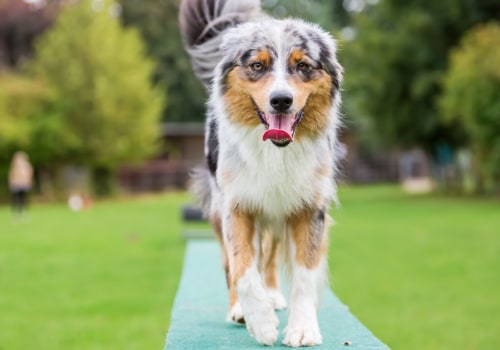Early training and socialization are essential for all dogs, but especially for Australian Shepherd puppies. These dogs have a lot of energy, so training can help them learn how to behave in certain situations. To ensure that your Australian gets along well with other dogs, it's important to socialize them at an early age. Puppies should begin the socialization process between 3 and 12 weeks old.
If you have an older Australian who wasn't properly socialized as a puppy, you'll need more time and patience to get them used to being around people and other dogs. It's important to have realistic expectations. Even if you can improve their behavior, they may never be overly affectionate with others. Socialization is the process of preparing a dog or cat to enjoy interactions and be comfortable with other animals, people, places, and activities. Socialization should ideally begin during the sensitive period, which is between 3 and 14 weeks of age for puppies and between 3 and 9 weeks of age for kittens.
Since most dogs are kept as pets, it's important that they are raised in a way that allows them to easily adapt to this lifestyle. Undesirable behaviors can lead to a dog being given up to an animal shelter, with mortality rates of up to 68%. Additionally, many veterinary science programs don't require the completion of canine behavior courses, so it's important to understand the level of knowledge of veterinary professionals about the behavior and behavior modification of dogs. Australian Shepherds are known for their protective and loving nature, making them easily trainable. They are often used as service dogs.
Studies have shown that dogs wearing a DAP collar (Dog Appeasing Pheromone) were less afraid and had longer and more positive interactions with other puppies during class than those wearing a placebo collar. According to the Australian Shepherd Club of America Breed Standard, these highly intelligent dogs have strong herding and guarding instincts. Dogs that behave in an unacceptable manner can be a source of resentment for their owners and the community at large. The lack of adequate socialization during the sensitive period, as well as the lack of continuous socialization throughout the dog's life, can greatly influence whether or not they develop behavioral problems. Even if a dog has lived with humans for up to 4 months before being removed from the human environment, they may still perform worse than other dogs without humans included in the study. Dog owners may lack adequate knowledge about dog socialization practices and canine behavior, as well as what constitutes the basic needs of a dog.
Therefore, it's important for owners to spend considerable time socializing their dog properly. However, if they don't receive the necessary socialization and training protocols, behavioral problems can develop.







